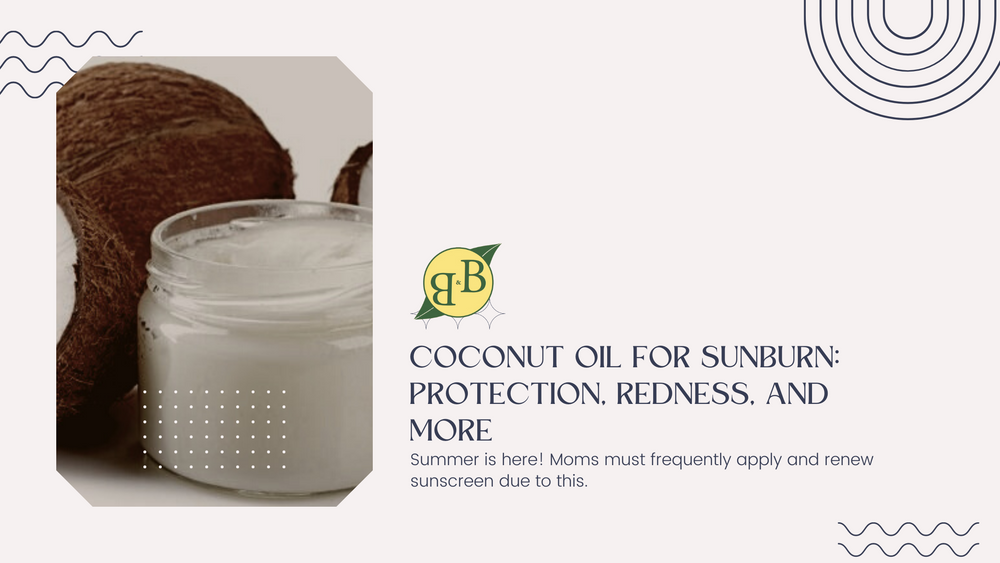Introduction
As someone who loves to enjoy the sunny outdoors, I’ve often had to deal with the uncomfortable aftermath of sunburn. It’s a common issue that many of us face, and finding a soothing solution is always a priority. That’s where the wonders of coconut oil come in.
In this article, we’ll explore the benefits of using coconut oil for sunburn, a natural remedy that has gained popularity for its skin-healing properties. Whether you’re dealing with a mild pink hue or a more severe burn, coconut oil might just be the soothing balm your skin needs.
Benefits of using coconut oil for sunburn

Moisturizing and soothing properties
One of the immediate concerns with sunburn is the dryness and peeling that often follows. Coconut oil is renowned for its deep moisturizing abilities, which can be a godsend for sun-damaged skin. When applied to a sunburn, coconut oil can help to:
- Replenish lost moisture and prevent excessive dryness
- Reduce the feeling of tightness and discomfort
- Soften the skin and minimize peeling
Its soothing effect can provide much-needed relief from the sting of a fresh sunburn, making the healing process more comfortable.
Antioxidant and anti-inflammatory effects
Coconut oil is not just a moisturizer; it’s also packed with antioxidants like Vitamin E, which can help combat the oxidative stress caused by UV rays. The anti-inflammatory properties of coconut oil can further aid in reducing the redness and swelling associated with sunburn. These effects can help to:
- Speed up the skin’s natural healing process
- Alleviate the pain and inflammation of sunburn
- Protect the skin from further oxidative damage
How to use coconut oil for sunburn?
Direct application
Using coconut oil for sunburn is quite straightforward. Simply take a small amount of virgin coconut oil and gently apply it to the affected area. Here’s how to do it:
- Ensure the skin is clean and dry before application
- Warm the oil between your hands to liquefy it, making it easier to spread
- Apply a thin layer over the sunburned skin, massaging it in gently
- Reapply as needed, especially after bathing or when the skin feels dry
Coconut oil and aloe vera mixture
Aloe vera is another natural remedy known for its soothing effects on sunburn. Combining it with coconut oil can enhance the healing benefits. To create this mixture:
- Mix equal parts of coconut oil and aloe vera gel
- Apply the blend to the sunburned area for a cooling and moisturizing effect
- Store any leftover mixture in the refrigerator for an extra soothing sensation upon application
Coconut oil and essential oils blend
Essential oils like lavender or peppermint can also be mixed with coconut oil for additional relief. These oils can provide a calming scent and further anti-inflammatory benefits. To use this blend:
- Add a few drops of your chosen essential oil to a tablespoon of coconut oil
- Stir well and apply to the sunburn gently
- Always perform a patch test first to ensure there’s no adverse reaction to the essential oils
Precautions when using coconut oil for sunburn

Potential allergic reactions
While coconut oil is generally safe for most people, it’s important to be aware of potential allergic reactions. If you’ve never used coconut oil on your skin before, it’s wise to:
- Conduct a patch test on a small area of skin before applying it to a larger area
- Watch for any signs of irritation or allergic reaction
- Discontinue use immediately if you experience adverse effects
Avoiding sun exposure after application
After applying coconut oil to a sunburn, it’s crucial to avoid further sun exposure. Coconut oil can make the skin more sensitive to UV rays, potentially worsening the burn. To protect your skin:
- Cover up with clothing or use a broad-spectrum sunscreen if you need to go outside
- Stay in the shade as much as possible until the sunburn has healed
- Keep your skin hydrated and reapply coconut oil as needed
Conclusion
In conclusion, coconut oil can be a beneficial natural remedy for treating sunburn. Its moisturizing and anti-inflammatory properties can help soothe the skin and promote healing. However, it’s important to use it with care and be mindful of any potential allergic reactions.
By following the guidelines on how to use coconut oil for sunburn and taking the necessary precautions, you can help your skin recover from sun damage while enjoying the natural benefits of this versatile oil.
FAQ
Can coconut oil help sunburn?
The fats found in coconut oil can help protect and soften burned skin. To use coconut oil on a sunburn, first cool the area with cool (but not cold) water, using a damp cloth or in a bath or shower. Then apply the coconut oil to the affected area.
What essential oil is good for sunburns?
Lavender oil “Lavender essential oil has anti-inflammatory and antioxidant properties which can help soothe and repair a burn. Lavender oil’s antimicrobial properties help lower the risk of fungal or bacterial infection, as well.
How do you heal sunburn fast?
Take frequent cool baths or showers to help relieve the pain. Use a moisturizer that contains aloe vera or soy to help soothe sunburned skin. Consider taking aspirin or ibuprofen to help reduce any swelling, redness and discomfort. Drink extra water.
Can I use coconut oil on my skin in the sun?
Coconut oil fails to prevent most of the damaging and harmful UVA and UVB rays that you’re exposed to when in the sun. While health bloggers posing as experts may tell you that it’s a good choice, all scientific studies point to one conclusion: it is not safe to use coconut oil as sunblock.
Originally posted 2023-07-08 16:16:41.

